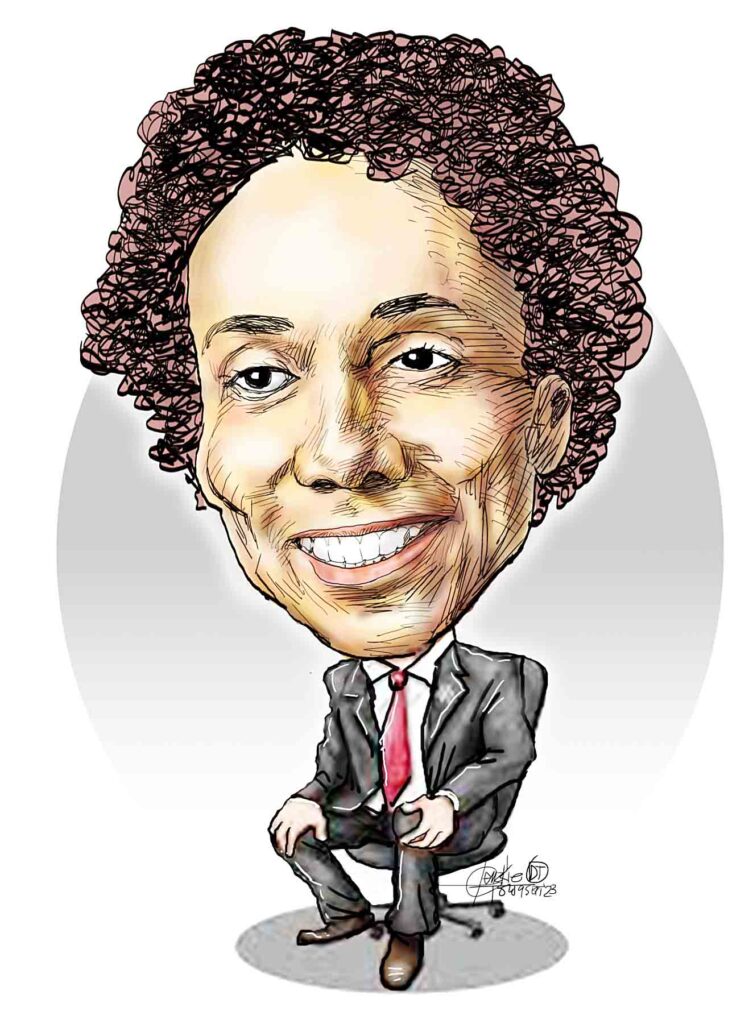In her crisp British accent, Emma Chiu, who is described as a “leading authority on intelligence forecasts,” asked: “When you think about the future of retail, what comes to mind first? Do you think about experiences? Do you think about what types of brands will still be existing in the future?”
In an age of “online everything,” it can be hard to imagine how brick-and-mortar establishments will thrive years on, but Chiu, showing clips of head-turning installations put up by brands like Nike and Louis Vuitton, tells us how retail will shape up in the future.
“For me, I tend to think about people,” she added, referring to the marketing person’s core concern — consumers, of course.
“We ran a survey earlier this year for a project called ‘Re-enchantment,’ and we found that more people want the sense of being dazzled; 65 percent of people globally said that brands should make more effort to wow me; 83 percent said they actively seek out experiences that bring them joy and happiness. The people are looking for this already, and they want it, and they want to see if brands will be able to help them achieve that.”
How did we get to this point?
To give “a glimpse of what the future consumer landscape looks like,” Chiu said that nowadays, “there are lots of different elements that make us feel quite anxious. Number one thing that people are concerned about is inflation. And this is something that’s on a global scale, so everywhere. Inflation is at the top of things that people are worried about.
“And yes, we survived pandemic, but the World Health Organization also found that the pandemic triggers 25-percent increase in prevalence of anxiety and pressure worldwide. So mental health is also a thing that stresses people out.
“In spite of these, there’s still a huge momentum for change. We still think about what the future will look like. We don’t want to go back to normal as it was, especially things that we felt were unjust or not quite right. And so we are going through this era of transformation where we want to take charge, and take things in our own hands and create, and power, change.”
Chiu continued, “We want to project a future that is optimistic. Seventy percent of people say that they feel optimistic of the future, and 75 percent of American Gen Z-ers, the younger generation, say that they are the generation to be creating change in the world.”
Two trends of note
A natural result of the pandemic is a need for a deeper sense of satisfaction among consumers. The first of two trends shared by Chiu is “Joyconomy, where, despite the trying times, we still want to spark the sense of joy within ourselves.”
She also talked about a trend called Creative Catalyst, where “advancements in technology that have really accelerated in the past few years has created this new wave of creatives and really put a lot of creative power in everyone’s hands.”
Of note is that people nowadays will patronize brands that “bring them joy,” “surprise and delight them” and “relieves their stress.”
Playfulness is an element that some brands are already trying to tap, as they would resonate with not just children but also adults, Chiu said.
The element of surprise is also something that should push brands to reimagine their campaigns. Connectivity is also important — how people can feel involved.
Also, technology has given everyone the power to create. As such, we have moved from passive consumption to active creation now.
“Increasingly, for the new generation, creativity is the new status symbol,” said Chiu. “It’s not wealth, it’s not where you work, it’s not the brands that you buy — it’s creativity. For them, they’re going to hold that up a higher level.”
The digital landscape, she acknowledged, has vastly changed from the way it was 10 years ago. She credits artificial intelligence or AI for most of the leaps that have been made in the realm of technology, particularly in the realm of creativity.

Her idea that “AI elevates creativity and does not replace it” is shared by author Malcolm Gladwell, who also gave a talk in the same event.
Gladwell, as an example, talked about how the pop icon Taylor Swift has managed to gain global dominance as a celebrity. He talked about how her relatability has sparked that need among the youth for what he called “shared common cultural experience.”
He added, “There comes a certain joy from being part of a whole.” Gladwell advised retailers, as well, “Build back spontaneity, surprise and unpredictability into the experience.”
As a kickoff to the celebration of SM’s 65th anniversary, Gladwell visited Manila along with Chiu, global director of Wunderman Thompson, a creative agency.
Gladwell, as information in the SM website states, “is known for his skills in simplifying complex concepts and making them appealing, engaging and accessible.” He is recognized for his New York Times bestsellers: Outliers, The Tipping Point, Blink and What the Dog Saw.
Chiu, meanwhile, “takes charge of producing thought-leadership macro trend reports, including the popular almanac, ‘The Future 100.’”
Gladwell surmised it perfectly at the end of his talk: “The challenge for all of you is to tap into that yearning to be part of something.”


